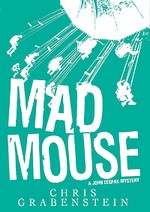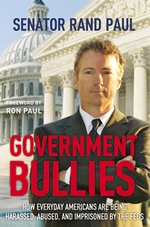Yes, this is largely just a reworking of my post about Vols. 1 and 2. It’s not like I’m going to have a lot of different things to say about this, so why torture myself by trying? Still, it’s different enough to justify my time. Hopefully yours, too.
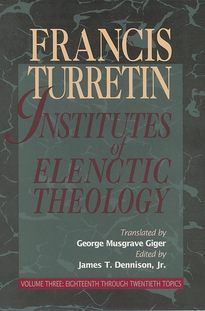 Institutes of Elenctic Theology
Institutes of Elenctic Theology
Vol. 3: Eighteenth through Twentieth Topics
by Francis Turretin, George Musgrave Giger (Translator), James T. Dennison, Jr. (Editor)
DETAILS: Series: Institutes of Elenctic Theology, Vol. 3 Publisher: P & R Publishing Publication Date: February 1, 1997 Format: Hardcover Length: 637 pg. Read Date: September 1-December 29, 2024

What’s Elenctic Theology Anyway?
Elenctic refers to a logical method involving asking questions, of defending a position (or arguing to persuade people to accept it) by proposing alternatives and asking a series of questions—practically cross-examing the alternatives, to show the problems of the alternatives. A good deal of what we call the “Socratic method” is elenctics.
Therefore, Elenctic Theology is a form of defending the truth of Christianity or Christian dogmas by suggesting alternatives and demonstrating their lack by way of asking and answering questions about them. Or by asking a question about a true dogma and asking questions that affirm them. Aquinas’ Summa Contra Gentiles is one example. This book is another.
What’s Institutes of Elenctic Theology Then?
For a long time, it was the standard textbook to train Presbyterian and Reformed ministers in various parts of the world—including the U.S.—until Charles Hodge’s systematic theology overtook it in popularity (Hodge, it should be noted had his students read Turretin’s Institutes).
Turretin wrote it at the height of Protestant Scholasticism, defending the Reformed understanding of Christianity in a post-Synod of Dordt and post-Westminster Assembly-era. He interacts with the best of Roman Catholic theology of the era, as well as Socinians, Remonstrants (read: Arminians), Lutherans, and others.
He examines the big issues of the time—and several smaller issues, as well. This set contains 20 topics and this book contains only the last three. Yes, the last three topics get an excess of 600 pages devoted to them—Turretin really digs down into these details. The topics in this volume are:
 The Church
The Church
 The Sacraments
The Sacraments
 The Last Things
The Last Things
Turretin’s Method
I think the best way to show how Turretin approaches these discussions is to show you the list of questions from one of the topics. Here’s what he looks at in the roughly 76 pages of The Twentieth Topic: cThe Last Things:
I. Will there be a resurrection of the dead on the lase day? We affirm.
Il. Are the same bodies numerically which have died to be raised again? We affirm against the Socinians.
Ill. Besides the universal resurrection, is there a particular resurrection of saints or of the martyrs which will precede the last by a thousand years? We deny.
IV. Can anything certain and determinate be held concerning the time of the end of the world? And are certain signs to precede it? The former we deny; the latter we affirm.
V. What will the destruction of the earth be like? Will it be annihilated by the final conflagration or will it be restored and renewed?
VI. Is a final judgment to be expected and what will it be like?
VII. Is there a hell? And what are its punishments—whether only of loss or also of sense? We affirm the latter.
VIII. Will eternal life consist in the vision of God or in the love and enjoyment of him? And under what symbols is it usually described and why?
IX. What are the endowments and qualities of glorified bodies
X. Will there be degrees of glory? And will the glory in heaven be equal or unequal and unlike!
XI. Will the saints in the other world know one another? We affirm.
XII. What is the difference between the church militant and the church triumphant?
XIII. Will the saints glorify God not only with a mental, but also with a vocal language? And will there be a diversity of languages or only one?
Like I said last time, I texted a friend saying that I wish I could break down an idea like Turretin. He made me feel a little better by replying, “You and everyone else born in the 20th century.” Because from these questions, he’ll spend a few pages breaking down the idea further, systematically working his way through the question and seemingly every possible angle of it.
There’s part of me that wants to abandon this re-read and just focus on observing his method and trying to replicate it in my life. I’m not going to, but it’s a thought.
There are times, however, where I wonder why Turretin would spend time on something like part of that last question, “Will the saints glorify God not only with a mental, but also with a vocal language?” The answer is, obviously, that these were topics being discussed in the Church, and it seemed necessary to Turretin. It’s just so far out of our experience to think of.
So, what did I think about Institutes of Elenctic Theology Vol. 3?
Let me get this out of the way first: This is dry. Dry like a stale crouton. I know most people think that about Theology in general—and sure, bad theology is usually dry, but not the good stuff. This is one of those exceptions that proves the rule.
There are moments, I should note, that some of Turretin’s personality shows through, some moments expressing the awe appropriate to the topic, the emotions stirred by the Gospel, and even a little humor/snark at the thoughts of his opponents. But those moments are brief and rare.
As it’s dry, it’s a little harder to read than others (say, Calvin or Bavinck). But it’s absolutely worth the effort—and after a little while, you won’t notice the effort. It’s so crisp, so clear, so helpful that you relish getting to read it. Giger and Dennison likely are due as much credit for this as Turretin is. Giger’s also likely due some credit for the arid language (he was translating in the early Nineteenth Century, not one an era known for punchy prose).
A lot of this volume didn’t click with me as much as the others did. So much of The Sacraments topic just didn’t click with me–I didn’t need that many pages critiquing the Roman system (as good as the critiques were). But that’s not to say I didn’t profit from it, just not as much as the previous volumes.
I can’t recommend this set highly enough. It’s a classic in every sense of the word.
To thee, therefore, thou triune God, the best and the greatest, most merciful Father in Christ, I am indebted and give thanks, not which I owe, but the greatest which I am able, with my whole heart because thou didst not refuse to be so present with me, thine unworthy servant, in this work, begun by me with thy help; that I was able not only to begin and carry on, but to bring it at length to the desired end. I ascribe nothing to my industry, nothing to my powers. The whole of this work is thine, O Lord, who hast made perfect thy strength in my weakness and hast directed by thy Spirit me groping and slipping, to whose grace I give the entire credit, if anything has been done here by me for the illustration of the sacred truth delivered by thee to us. But because to no purpose does anyone plant and water unless thou givest the increase; grant, thou best Father, on account of Christ my precious Redeemer, that these endeavors of mine, whatsoever they may be, may contnbute to the glory of thy most holy name and the benefit of thy church. Grant char as much of the way and of life as still remains to me to be passed with thy divine mercy, | may be able to spend under thy favor and with the most gracious protection of thy Spirit in the exercise of my calling and in the pure and constant worship of thy name, until at length, the most troublesome journey of this life being finished, translated to eternal rest, I can celebrate with everlasting praises thee, my God and Savior, living and blessed for ever in the heavenly assembly of the firstborn. And to thee, the everlasting King, the only wise God, immortal, invisible, Father, Son and Holy Ghost, adorable Trinity, be honor and glory, for ever and ever. Amen.

This post contains an affiliate link. If you purchase from it, I will get a small commission at no additional cost to you. As always, the opinions expressed are my own.
![]()



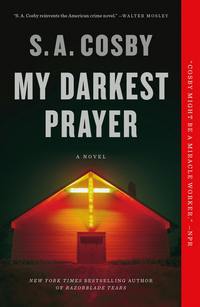
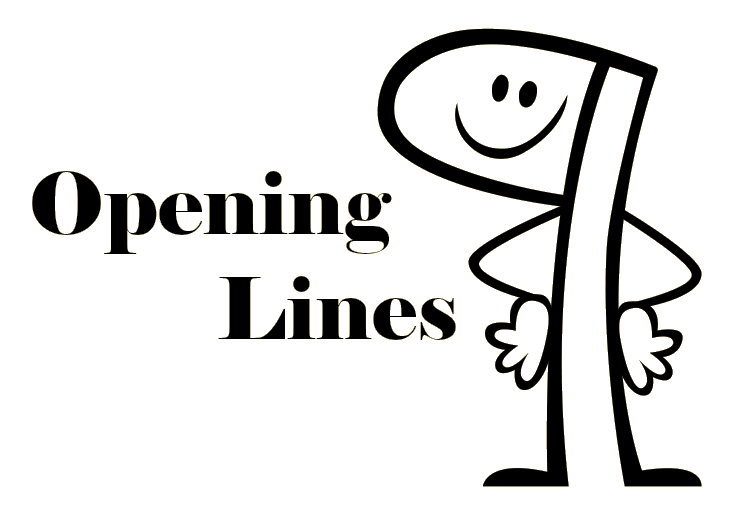
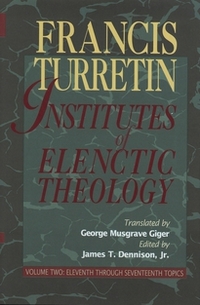
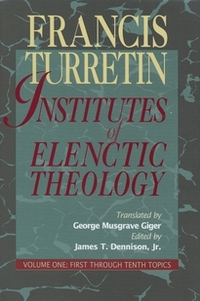



 It’s been far too long since we’ve had a new Kitty Norville adventure, and Carrie Vaughn didn’t disappoint with this one.
It’s been far too long since we’ve had a new Kitty Norville adventure, and Carrie Vaughn didn’t disappoint with this one.
